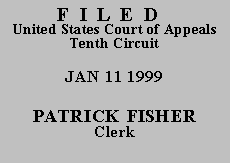

| UNITED STATES OF AMERICA,
vs.
ENRIQUE CHAVEZ-RAMOS |
|
His attorney has moved to withdraw, pursuant to Anders v. California, 386 U.S. 738 (1967), on the ground that Mr. Chavez-Ramos has not presented any nonfrivolous claims on appeal. Our jurisdiction arises under 18 U.S.C. § 3742(a) and 18 U.S.C. § 1291. We affirm the district court's judgment and grant his attorney's motion to withdraw.
Mr. Chavez-Ramos argues that the sentencing court erroneously considered his 1987 conviction for driving under the influence of alcohol ("DUI") in Globe, Arizona, and, on the basis of this error, denied him a two-level reduction under the safety valve provision. In his view, a first-time DUI should be analogized to the offenses listed in U.S.S.G. § 4A1.2(c), which are excluded from the calculation of a defendant's criminal history. This argument ignores both the commentary to § 4A1.2(c) and the established interpretation of that section in this and other circuits. Convictions for driving while intoxicated or under the influence of alcohol count toward the criminal history and are not considered minor infractions. See U.S.S.G. § 4A1.2(c), Commentary, Application note 5; United States v. Walling, 974 F.2d 140, 142 (10th Cir. 1992); see also, e.g., United States v. Loeb, 45 F.3d 719, 722 (2nd Cir. 1995). Because the DUI conviction occurred within ten years of the onset of the instant offense, it satisfies the requirements of § 4A1.2(e)(2) and § 4A1.1(c). Mr. Chavez-Ramos does not challenge the other criminal history points that the district court assessed.
Because we agree with the sentencing court's determination that Mr. Chavez-Ramos had more than one criminal history point, we also hold that he failed to qualify for the safety valve provision, which does not apply to defendants with multiple criminal history points. See 18 U.S.C. § 3553(f)(1). His attorney's motion to withdraw on the ground that Mr. Chavez-Ramos' appeal was frivolous and in disregard of Tenth Circuit precedent is GRANTED.
AFFIRMED.
Entered for the Court
Paul J. Kelly, Jr.
Circuit Judge
*. This order and judgment is not binding precedent, except under the doctrines of law of the case, res judicata, and collateral estoppel. This court generally disfavors the citation of orders and judgments; nevertheless, an order and judgment may be cited under the terms and conditions of 10th Cir. R. 36.3.
**. After examining the briefs and the appellate record, this three-judge panel has determined unanimously that oral argument would not be of material assistance in the determination of this appeal. See Fed. R. App. P. 34(a); 10th Cir. R. 34.1 (G). The cause is therefore ordered submitted without oral argument.